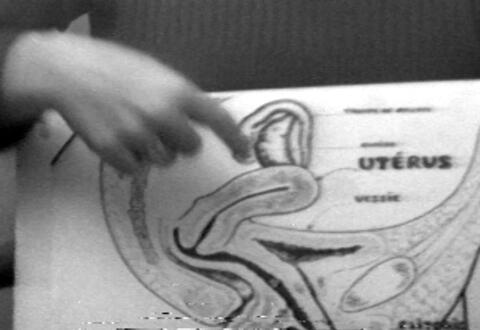Hélène Bourgault
Hélène Bourgault was born in Quebec City on 16 May, 1945. In 1975, she was one of the founding members of the Groupe d’intervention vidéo (GIV) in Montreal. There she made several video documentaries, including Chaperons Rouges, co-directed with Helen Doyle. Taking up the topic of violence against women from a “devictimisation” perspective, Chaperons rouges used an innovative video language by mixing interviews with fiction, theatre, song and music. Chaperons rouges won an award at the Second Video Open in Toronto in 1979 and at the Festival international de films de femmes in Sceaux in 1981. In the early 1990s, as she continued explorations she had been engaged in for yours, Hélène scripted and directed End of a Millennium at the National Film Board, a multi-faceted documentary in which hope is framed by a solid realism, the fruit of research into intellectual currents marking the passage from the twentieth to the twenty-first centuries. As a researcher, Hélène has contributed to numerous films and television productions in Quebec and in France. She has worked with figures such as Jean Chabot, Arthur Lamothe, Luce Guilbault and, more recently, with Manuel Foglia on a documentary project about Pierre Bourgault. She has also worked with Gilles Carle and Jacques Lacoursière on the series Épopée en Amérique on TéléQuébec, and with Mark Starowicz on the series Le Canada une histoire populaire for Radio-Canada/CBC. In the past few years she has also worked as a translator for the CBC, TVA and the National Film Board. She has also been in charge of researching and writing several documents on various aspects of the film industry, including a report on the distribution of short films in commercial movie theatres in Quebec (1990) and a directory of female film technicians in Quebec (1990). She has made animated films and taught audiovisual production, and, in 1989-90, contributed regularly to the journal Lumière.
- Renée Roy






